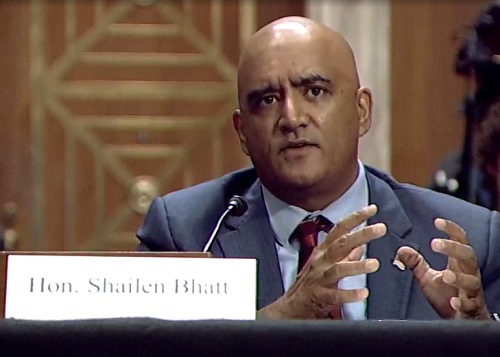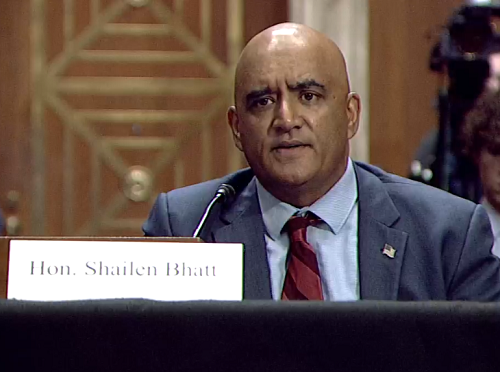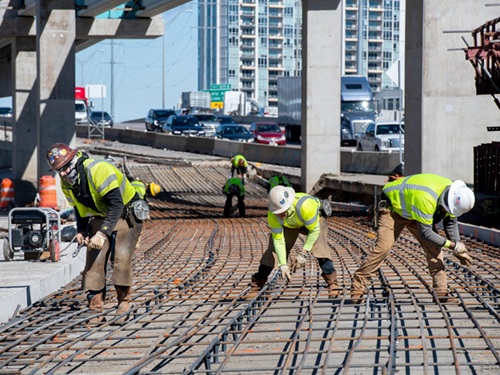Shailen Bhatt (above), administrator of the Federal Highway Administration, testified before the Senate Committee on Environment and Public Works on June 5 as part of a budget oversight hearing for his agency.
[Above photo via the Senate EPW committee]
In his remarks, Bhatt explained how FHWA has been working to disburse funding from the Infrastructure Investment and Jobs Act or IIJA enacted in 2021 as well as from the Inflation Reduction Act enacted in 2022.
Since those two measures were passed, Bhatt said FHWA has distributed over $180 billion in highway formula funding to the states and issued notices of funding opportunities or NOFOs for over $16 billion in discretionary grants.
“The success of these programs depends, in part, on the streamlined delivery of funding – to get projects to, and through, construction,” he emphasized.

“So FHWA has taken steps to speed up project delivery. For example, we stood up a new, permanent team to oversee grants-management matters and have several acceleration activities underway,” Bhatt pointed out. “And FHWA has continued to make significant progress in advancing new programs and funding projects that improve safety, reduce bottlenecks to keep freight moving, and will make our infrastructure more resilient.”
He stressed, however, that the backdrop to all project delivery efforts remains safety. “[That] is FHWA’s number one priority,” Bhatt noted. “Although we have seen some signs for cautious optimism based on recent data, roadway fatalities, particularly among vulnerable road users, remain stubbornly high and much work remains to improve road safety. We need to continue to make investments in safety, make good safety policy decisions, and harness technology to get us to our goal of zero deaths – not decades from now but much sooner.”
He also touched on FHWA’s collaboration with the Joint Office of Energy and Transportation to help states access $7.5 billion from the National Electric Vehicle Infrastructure or NEVI program and Charging and Fueling Infrastructure or CFI discretionary grant program to help build out a network of EV chargers across the country.
Bhatt noted that FHWA finished approving all EV charging plans submitted by the states, Puerto Rico, and the District of Columbia in September 2022, unlocking $885 million in NEVI formula funding to implement those plans. To date, EV charging stations funded by the IIJA have been opened in six states – Hawaii, Ohio, New York, Pennsylvania, Maine, and Vermont – with many more expected to open soon.
Bhatt also touched on the federal government’s response to the collapse of the Francis Scott Key Bridge in Baltimore on March 26, highlighting not only the efforts of FHWA, but of the Maryland Department of Transportation, the City of Baltimore, the U.S. Army Corps of Engineers, the U.S. Coast Guard, and private sector firms.
“The response to this disaster has highlighted the ability of industry and government entities to work together in times of calamity,” he emphasized – a response effort Bhatt also discussed during a House of Representatives Committee on Transportation and Infrastructure hearing in May.
“It truly has been a whole-of-government response,” Bhatt said at the EPW hearing. “I have been engaged in a number of bridge-related incidents during my career … but I have never seen something on the scale of the Key Bridge collapse. While it is a monumental task to clean up the site and rebuild, the coordinated response by government and industry to date gives me great optimism.”



